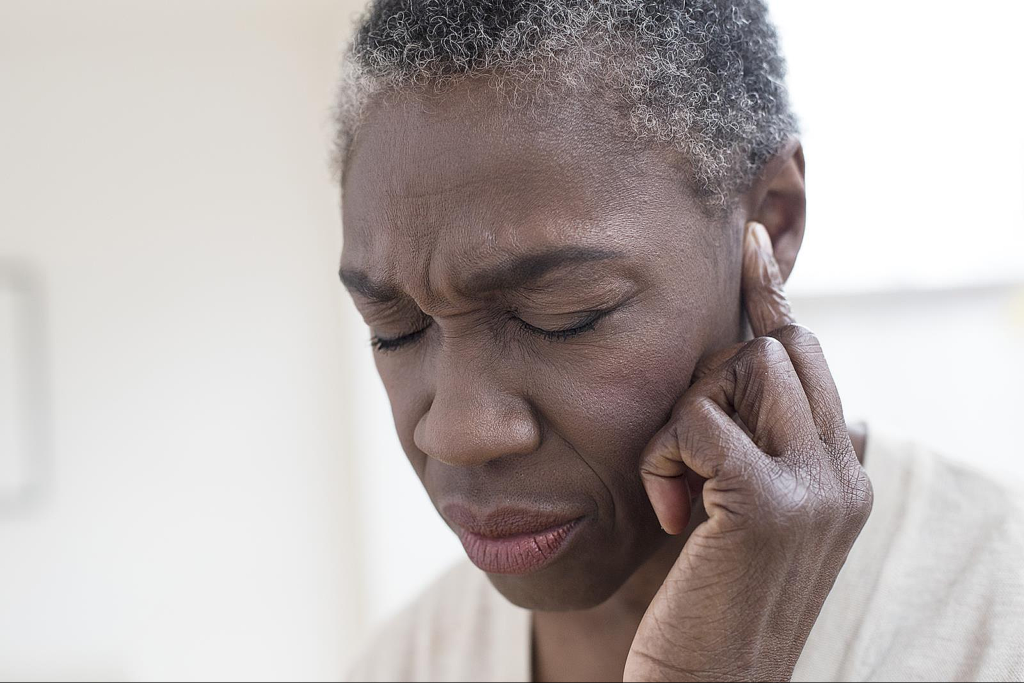George Tetum began noticing he was experiencing hearing loss but was afraid to admit it. During conversations, he would miss hearing certain words, sometimes even entire sentences. Watching TV or listening to the radio became a chore at times. The 65-year-old, North Carolina resident is also a music aficionado. He had always prided himself on being able to hear the different nuances of a quality recording, now he can no longer do so.
Finally, George’s wife, Vanessa, grew tired of having to repeat herself during conversations with him. She found herself continuously raising her voice so that George could understand what she was saying. Finally, the retired postal worker decided to face his fear and have his hearing checked.
According to medical experts, hearing loss does not discriminate. Affecting 48 million people in the U.S., hearing loss crosses the racial and cultural divide. Men are more likely than women to suffer from hearing loss. Adults ages 65-74 years old are 18 times more likely to have hearing loss than younger adults ages 18-44.
According to James F. Battey, M.D., Ph.D., former director of the National Institute on Deafness and Other Communication Disorders (NIDCD), even mild deafness can hurt daily life interactions. “Hearing loss can affect a person’s overall quality of life, and has been linked to depression and dementia in older adults,” Dr. Battey points out.
Hearing loss can be significant and sudden, or subtle. It is important to fully understand what the indicators are as they’re commonly discreet and difficult to notice. Here are some signs that you might be losing your hearing:
- Ringing or buzzing in your ear
- Difficulty following conversations
- Speech and other sounds are muffled
- Difficulty hearing in noisy situations like in restaurants or malls
- A need to have the volume turned up high on your TV or radio
- Responding inappropriately in conversations
- Reading lips intently when you are spoken to
- You’ve been told you have a hearing problem
Hearing loss is described by varying degrees, not percentages. Hearing loss may be mild, moderate, moderately severe, severe, or profound, and it can vary across pitches.
What are some hearing loss causes?
- Inner ear damage—aging and loud noises may cause stress on the nerve cells in the cochlea that sends signals to the brain.
- Earwax buildup—can block the ear canal and prevent the conduction of sound waves. The problem of too much wax buildup can be solved with its removal.
- Ruptured eardrum—loud noises, sudden changes in pressure, poking your eardrum with a sharp object, and an infection can cause a rupture
- Ear infection and abnormal bone growths or tumors—in the outer or middle ear, any of these can cause loss
- Some illnesses—illnesses that can cause a high fever like meningitis may damage the cochlea; diabetes, heart, mumps, thyroid, or circulation problems can contribute to loss
- Medications—some chemotherapy drugs can damage the middle ear and so can high doses of aspirin, pain relievers, and antimalarial meds
- Family history–Genetic factors also make some people more susceptible to hearing loss than others.
- Head trauma—a blow to the head or an injury can cause a deficit in hearing
There are various testing methods used to diagnose a hearing deficit:
- Doctor’s exam—A physician will look into your ear to see if wax buildup is a culprit or inflammation from an infection. He may also order diagnostic testing like a CAT scan to look for structural causes.
- Tuning fork tests—these metal instruments that are two-pronged produce a sound when they are struck; the test will assess if whether hearing loss is caused by damage to the vibrating parts of your middle ear (including your eardrum), damage to sensors or nerves of your inner ear, or damage to both
- Audiogram test— An audiogram is a graph that shows the softest sounds a person can hear at different frequencies. The test represents sound volume or intensity, which is measured in decibels (dB). A hearing threshold of between 0 and 25 dB is considered normal.
If you are experiencing hearing loss take some comfort in knowing that the medical condition is well understood and there are many treatment options that you can discuss with your physician such as:
- Ear wax removal—a physician can remove ear wax by flushing then scooping or suctioning it out
- Surgery—might be required if there is traumatic injury to the ear or repeated infections
- Hearing aids—can amplify sound and direct it to your inner ear canal, they are widely available in a range of styles, colors, sizes, technology levels, and price points and they should be properly fitted
- Cochlear implant— an electronic device that is implanted into the inner ear and is used to restore hearing in patients who have severe to profound hearing loss; an implant does not restore or create normal hearing. Instead, it can give a deaf person a useful auditory understanding of the environment and help him or her to understand speech
For More Information on Hearing Loss:
National Institute on Deafness and Other Communication Disorders
www.nidcd.nih.gov
Self Help for Hard of Hearing People
www.hearingloss.org
American Speech-Language-Hearing Association www.asha.org
